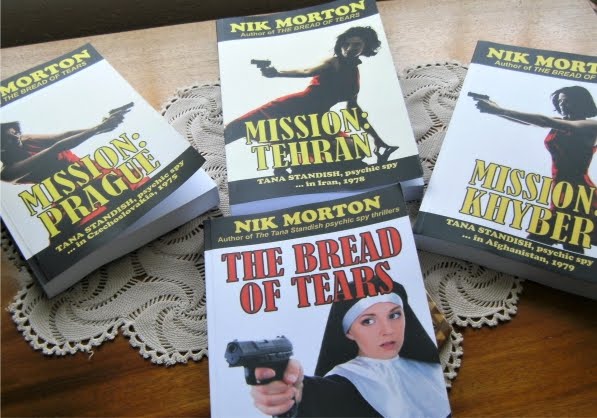For The $300 Man, I stumbled on an interesting fact while doing research into another western. The Union draft allowed for draft dodgers – if they paid a substitute to take their place – and the going rate was $300. The title of The $300 Man was born. [Different novels will originate in other ways – the title may not come to mind at first, or even when the book is finished!]
In 1861, Andrew Carnegie, 25, invested in Columbia Oil Co. He never enlisted in the Civil War but purchased a substitute. His firm pumped 2,000 barrels a day; he also invested in the new steel industry. Two years later, at the war’s height, John D. Rockefeller, 23, built with four partners an oil refinery in Cleveland near Cuyahoga River. He avoided military service by buying a substitute.
Once I had my title and the initial idea about a substitute, I then had to decide on why anyone would accept the money to go and possibly get maimed or killed. The thought of being maimed brought to mind a few heroes (and villains!) who wore a hook. I decided my hero would lose a hand in the Civil War and a hook would replace it. A special hook, however, that is adaptable for use with other tools or utensils.
You might be able to start straight in on your novel – or you may need to plot it first. That’s entirely up to you. Working from a rough plot-plan makes the going easier – and usually there are still surprises on the way to make the story interesting to you, the writer.
For this novel, which would take place some years after the war, I wanted to mention $300 early on – and decided that the hero would always carry that amount – a significant reminder for him. And to create action to hook the reader, I’d have him getting robbed. These are the first words of the book, in the Prologue: The Hook:
‘$300 – that’ll do nicely!’ said Bert
Granger as he finished thumbing through the billfold Corbin Molina had been
encouraged to hand over. As added persuasion, Bert held a revolver in his other
hand.
‘That’ll do nicely’ is a modern American phrase which I used for a bit of fun.
I wanted the novel to be more than a traditional western, though it would contain many of the genre’s traits. As I built up the storyline, I found that it contained romance, action, betrayal, family disputes, historical events, and courage. A good mix.
The writing doesn’t always go from beginning to end. That’s why I use a plot-plan document. Certain scenes might pop into my head concerning particular characters – but those scenes may be further along in the story. It doesn’t matter – put them into the plot-plan till you need them. Think of how films are made – scenes and characters are rarely filmed in linear fashion (usually it’s for convenience and cost reduction) – the film’s all slotted together in the correct order at the editing stage.
- excerpt from Write a
Western in 30 Days, pp 6/7.
E-book from Amazon com bought from here
E-book from Amazon co uk bought from here
or paperback post-free world-wide from here
On
Amazon.com this book has eight 5-star reviews and two 4-star reviews; on
Amazon.co.uk it has an additional three 5-star reviews. The book keeps dropping into the top 100 Amazon charts. Many thanks to everyone who has bought the book, enabling this to happen. I know of at least two people who have bought the e-book and the paperback version!
This
book is a very useful guide for anyone wanting to write genre fiction – that
is, any genre, not only westerns. Those
aren’t my words, but the opinion of reviewers on Amazon.



























No comments:
Post a Comment